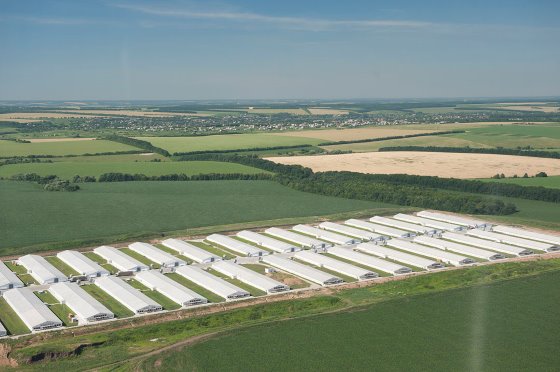Russian invasion stymies Ukraine cropping

Growers around the world are gearing up to plant their crops.
In Australia, they are crunching the numbers on cereals, canola and pulses to see which ones can best justify expenditure on the skyrocketing cost of global inputs, while in Ukraine, farmers are wondering if they can plant at all.
As Russian military strikes spread further into the heart of one of the world’s most significant cropping countries, supply chains have broken down, and facing uncertainty on every front are Ukrainian civilians and businesses.
Among them is Myronivsky Hliboproduct, or MHP, which farms 380,000 hectares, growing mostly wheat over winter, and corn, sunflower and soybeans over summer.
MHP is also the second-largest producer of sunflower oil in Europe, and its chairman is Australian John Rich.
“To date, 15 per cent of MHP’s land has Russian tanks parked on it,” Dr Rich said on Friday in correspondence with Grain Central.
Dr Rich said MHP was one of only several large operations in the country that has the necessary inputs at hand to start planing summer crops in coming weeks.
“All mid to small farmers in current safe zones do not have diesel, fertilisers…nor seed, and the eastern Ukraine ideally plants its summer crops in April, and red zones are a total catastrophe.”
While global grain and oilseed markets are rallying in response to the crisis, the outlook for food security in Europe the Middle East and Africa is under threat because around Ukraine and southern Russia jointly produce around 25pc of the world’s wheat, 30pc of its barley, 20pc of its corn and half its sunflowers.
“All are currently frozen by war or sanctions.
“If the war continues, the winter crops that are coming out of the ground will rot there, back to the repeat of history in World War I.”
MHP is listed on the London Stock Exchange, and is Europe’s largest poultry producer.
In peacetime, the vertically integrated company was employing more than 26,000 people and supplying around 300,000 tonnes of chicken meat annually in Ukraine, roughly half of all the country’s total produced for the domestic market, as well as being an exporter.
MHP is now believed to be the only large-scale poultry processor still able to operate, and its distribution network is supplying some of its product for free to those Ukrainian citizens in need because of the invasion.
“If hostilities drag on for at least a month, the country is threatened with a large-scale food crisis; meat and other essential products will be unavailable.”
MHP last week stated it was giving chicken to those in need, including Ukraine’s defenders, hospitals and care facilities, and regions that have been severely impacted by hostilities, namely Kyiv, Kharkiv, Sumy, Zaporizhzhia, Mykolaiv, and Odesa.
“Failure of MHP’s production and distribution directly means a failure not only in the war effort, but would cause a humanitarian disaster not seen since the invasion by Germany in World War II.”
Dr Rich said the families of some of MHP’s male employees had been evacuated, and women involved in food production were continuing to support the nation’s food-security efforts.
“Most male employees in critical positions remain for the food security effort but the Ukraine Government has mobilised, hence more men have to leave to join the armed forces or territorial defence guard.”
In a statement dated March 4, MHP said it was currently not able to export, and some excess stock was being frozen.
Suspension of operations at its two sunflower-crushing plants and one soy-crushing facility means meal is not readily available, and MHP birds are being fed mostly corn instead.
MHP stocks one year’s supply of grains, and also grows crop including barley and canola in its rotations, with some of its fields used to produce silage as one of the feedstocks for its biogas plants, among the largest in Europe.
MHP has two beef abattoirs which have ceased operations because of the invasion, and Dr Rich said Ukraine’s dairy operations are facing feed shortages.
Ukraine is a net importer of pork, around 250,000t per annum, and also around 180,000t of poultry products for sausage production.
“Importation has ceased due to logistics problems like missile strikes and bombing.”
Read also
Wheat in Southern Brazil Impacted by Dry Weather and Frosts
Oilseed Industry. Leaders and Strategies in the Times of a Great Change
Black Sea & Danube Region: Oilseed and Vegoil Markets Within Ongoing Transfor...
Serbia. The drought will cause extremely high losses for farmers this year
2023/24 Safrinha Corn in Brazil 91% Harvested
Write to us
Our manager will contact you soon



